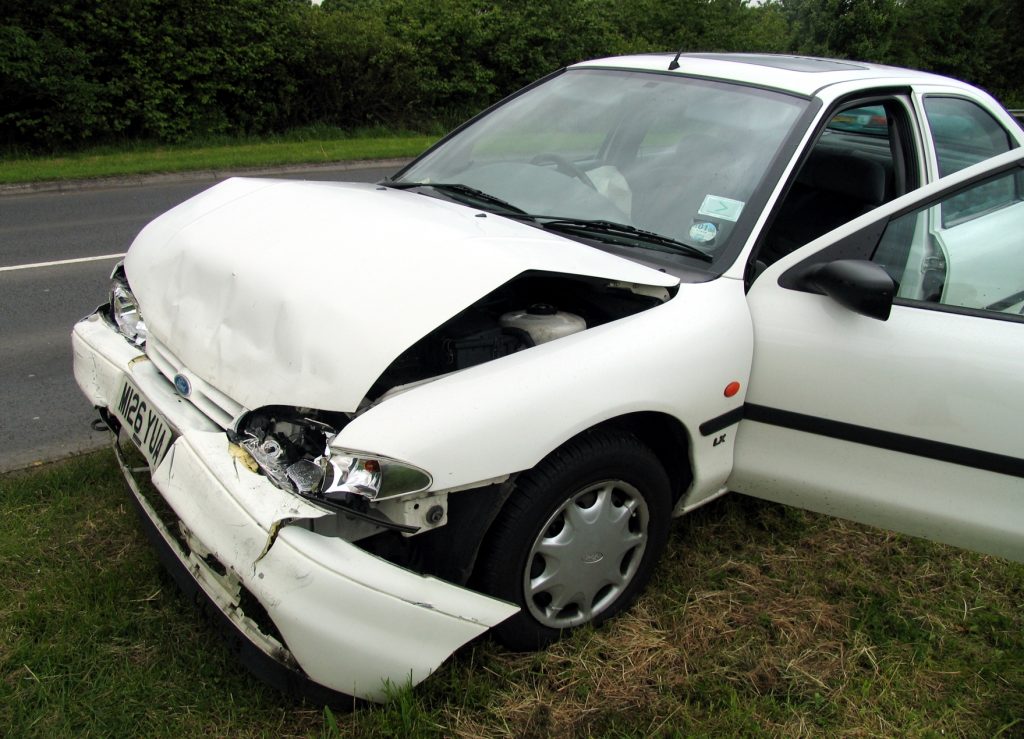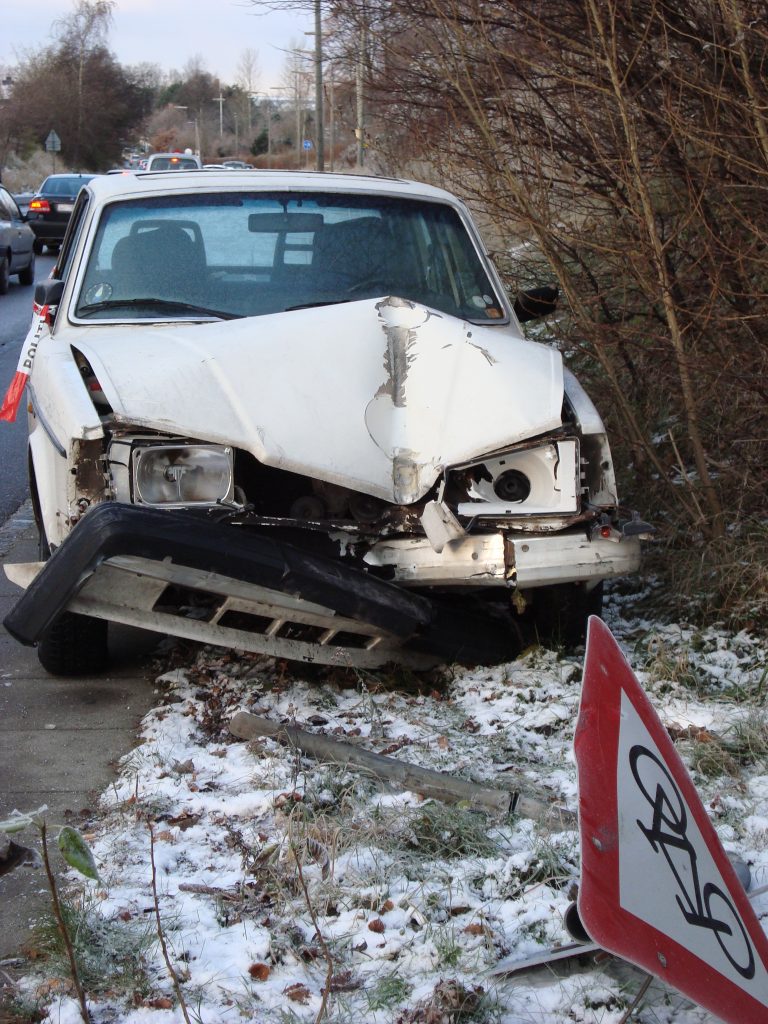 Imagine you are driving home from work and you collide with another vehicle. Would your employer be liable for the damages? For most commuters, the employer is not accountable for any accidents that occur on the way to or from the place of work and the employee’s residence. But in certain cases, such as where an employee is traveling with a specific business purpose under the direction of the employer, the employer may be on the hook under a theory known as vicarious liability. Effectively, vicarious liability holds an employer liable for an employee’s negligence when the employee is acting within the scope of the employer’s business. La. C.C. art. 2320.
Imagine you are driving home from work and you collide with another vehicle. Would your employer be liable for the damages? For most commuters, the employer is not accountable for any accidents that occur on the way to or from the place of work and the employee’s residence. But in certain cases, such as where an employee is traveling with a specific business purpose under the direction of the employer, the employer may be on the hook under a theory known as vicarious liability. Effectively, vicarious liability holds an employer liable for an employee’s negligence when the employee is acting within the scope of the employer’s business. La. C.C. art. 2320.
On December 20, 2009, James Richards was traveling from Texas to his home in Florida along Interstate 10. In Bienville Parish, Louisiana, Richards collided with a van, causing the death of the driver and severe, paralyzing injuries to the passenger, Ricky Winzer. In 2010, Winzer filed a lawsuit against Richards and Richards’s employer, Certified Constructors’ Service, Inc. (“CCSI”). Winzer alleged that Richards was acting in the course and scope of his employment at the time of the accident, making CCSI liable through the doctrine of vicarious liability. CCSI filed a motion for summary judgment, arguing that Richards was not employed at the time of the accident and therefore CCSI could not be liable for his negligence. The trial court, after an evidentiary hearing in which depositions, interrogatories, and payroll documents were submitted, granted CCSI’s motion. Winzer appealed to Louisiana’s Second Circuit Court of Appeal.
Upon review, the Court reiterated the general rule under Louisiana jurisprudence that an employer is not liable for an employee’s negligence when they are driving to and from work unless the employer provides the transportation, pays expenses or wages for the time spent traveling, or has assigned the employee a specific task to perform for the employer. See Woolard v. Atkinson, 988 So. 2d 836 (La. Ct. App. 2008). To determine if the employee’s actions fall within one of the above exceptions, courts must examine the following factors: the employer’s power of control; the employee’s duty to perform the act in question; the time, place, and purpose of the act in relation to the employment; the relationship between the employee’s act and the employer’s business; the benefits received by the employer from the act; the employee’s motivation for performing the act; and the employer’s reasonable expectation that the employee would perform the act. See Orgeron v. McDonald, 639 So. 2d 224 (La. 1994).
 Louisiana Personal Injury Lawyer Blog
Louisiana Personal Injury Lawyer Blog


 Louisiana, like most states, requires drivers to maintain liability insurance (or less commonly, a liability bond or certificate of self-insurance) to legally operate a motor vehicle. In 1992, an amendment to this law explicitly allowing insurance companies to offer “named driver” exclusions in their policies, which allowed an insured the option of paying a lower premium in exchange for insurance that provides no coverage while the specifically named driver operates a covered vehicle. The law was upheld by Louisiana courts, though it did create some disagreements in its interpretation, both among the appellate courts and between the Louisiana Supreme Court and the legislature. One of these disagreements concerned whether the owner of a vehicle could purchase liability insurance and then, through the named driver exclusion, exclude himself from coverage under the policy. Although the Louisiana Supreme Court determined that to allow such a maneuver would be violative of public policy, their interpretation was overruled by subsequent legislation explicitly allowing it.
Louisiana, like most states, requires drivers to maintain liability insurance (or less commonly, a liability bond or certificate of self-insurance) to legally operate a motor vehicle. In 1992, an amendment to this law explicitly allowing insurance companies to offer “named driver” exclusions in their policies, which allowed an insured the option of paying a lower premium in exchange for insurance that provides no coverage while the specifically named driver operates a covered vehicle. The law was upheld by Louisiana courts, though it did create some disagreements in its interpretation, both among the appellate courts and between the Louisiana Supreme Court and the legislature. One of these disagreements concerned whether the owner of a vehicle could purchase liability insurance and then, through the named driver exclusion, exclude himself from coverage under the policy. Although the Louisiana Supreme Court determined that to allow such a maneuver would be violative of public policy, their interpretation was overruled by subsequent legislation explicitly allowing it. 
 The term concurrent-cause is a legal doctrine that may be vital to your commercial property. If loss or damage occurs as a result of two or more causes, one event may be covered while the other is not. It would not matter if the events happened at the same time, or if one event occurred before the other. That is why [i]t is essential that the insured produce evidence which will afford a reasonable basis for estimating . . . the proportionate part of damage caused by a risk covered by the insurance policy.”
The term concurrent-cause is a legal doctrine that may be vital to your commercial property. If loss or damage occurs as a result of two or more causes, one event may be covered while the other is not. It would not matter if the events happened at the same time, or if one event occurred before the other. That is why [i]t is essential that the insured produce evidence which will afford a reasonable basis for estimating . . . the proportionate part of damage caused by a risk covered by the insurance policy.”  In the law, words matter greatly. How even one word is defined can make or break a lawsuit. However, courts do not allow words to be defined willy-nilly. There are certain methods courts will use to define words. In the case below, we will see how the plaintiff’s case was rendered moot due to the court’s interpretation of a word.
In the law, words matter greatly. How even one word is defined can make or break a lawsuit. However, courts do not allow words to be defined willy-nilly. There are certain methods courts will use to define words. In the case below, we will see how the plaintiff’s case was rendered moot due to the court’s interpretation of a word. The Louisiana Code of Civil Procedure provides that a court has wide discretion in granting a continuance (a postponement of the proceedings) in any case where appropriate. See
The Louisiana Code of Civil Procedure provides that a court has wide discretion in granting a continuance (a postponement of the proceedings) in any case where appropriate. See  There are multiple requirements and policies that claimants must follow in order to be eligible to recover on a claim under a National Flood Insurance Program (“NFIP”) Standard Flood Insurance Policy (“SFIP”).
There are multiple requirements and policies that claimants must follow in order to be eligible to recover on a claim under a National Flood Insurance Program (“NFIP”) Standard Flood Insurance Policy (“SFIP”).  The National Flood Insurance Program (“NFIP”) is intended to provide affordable flood insurance on fair terms. The Federal Emergency Management Agency (“FEMA”) is responsible for administering and regulating NFIP. There are multiple requirements and policies that claimants must follow in order to be eligible to recover on their claim. The following lawsuit looks at the requirements necessary to prove flood damages under the terms of a Standard Flood Insurance Policies (“SFIP”).
The National Flood Insurance Program (“NFIP”) is intended to provide affordable flood insurance on fair terms. The Federal Emergency Management Agency (“FEMA”) is responsible for administering and regulating NFIP. There are multiple requirements and policies that claimants must follow in order to be eligible to recover on their claim. The following lawsuit looks at the requirements necessary to prove flood damages under the terms of a Standard Flood Insurance Policies (“SFIP”). Insurance policies can be varied, complex, and at times unintelligible. Policies are generally purchased for a time of need. Yet in many cases, the insurance company worsens a stressful event by denying coverage. Coverage can be denied for many reasons including when the claimant is an “uninsured motorist.” In a recent case out of Pointe Coupee Parish, an employee faced this label and a denial of coverage.
Insurance policies can be varied, complex, and at times unintelligible. Policies are generally purchased for a time of need. Yet in many cases, the insurance company worsens a stressful event by denying coverage. Coverage can be denied for many reasons including when the claimant is an “uninsured motorist.” In a recent case out of Pointe Coupee Parish, an employee faced this label and a denial of coverage.  Collision insurance covers car damages caused by driving-related accidents. For example, colliding into an object or another car, whether the insured driver caused this accident or not, are covered damages. Due to this breadth of possibilities, insurance companies write strict requirements into their policies, including the need to have a valid driver’s license on hand during an accident. A recent case in Louisiana involved Affirmative Insurance Company (“Affirmative”) denying collision coverage to an insured driver who did not have his license on him during a car accident on the intersection of Lapalco Blvd. and Ames Blvd. in Marrero, Louisiana.
Collision insurance covers car damages caused by driving-related accidents. For example, colliding into an object or another car, whether the insured driver caused this accident or not, are covered damages. Due to this breadth of possibilities, insurance companies write strict requirements into their policies, including the need to have a valid driver’s license on hand during an accident. A recent case in Louisiana involved Affirmative Insurance Company (“Affirmative”) denying collision coverage to an insured driver who did not have his license on him during a car accident on the intersection of Lapalco Blvd. and Ames Blvd. in Marrero, Louisiana.